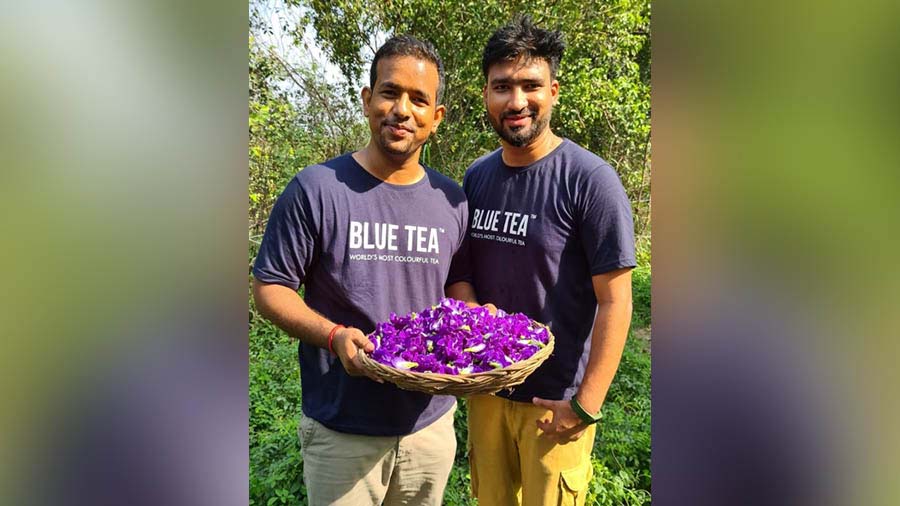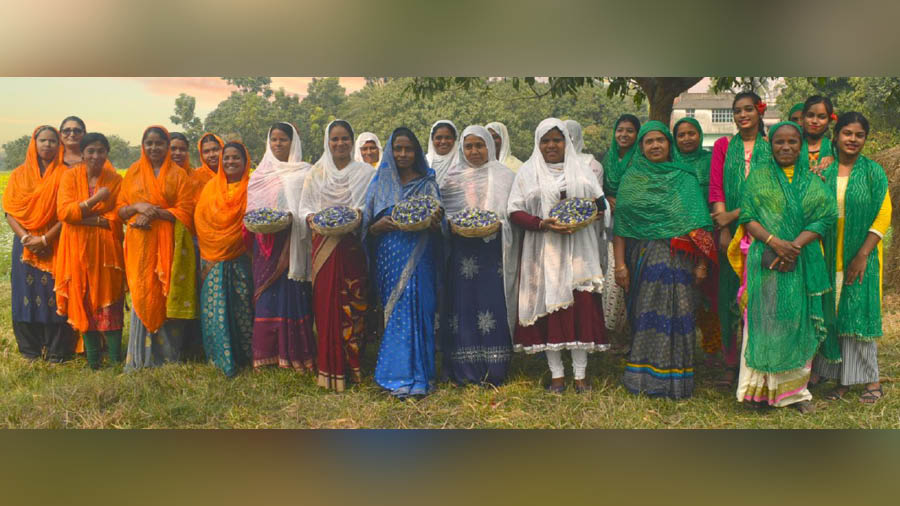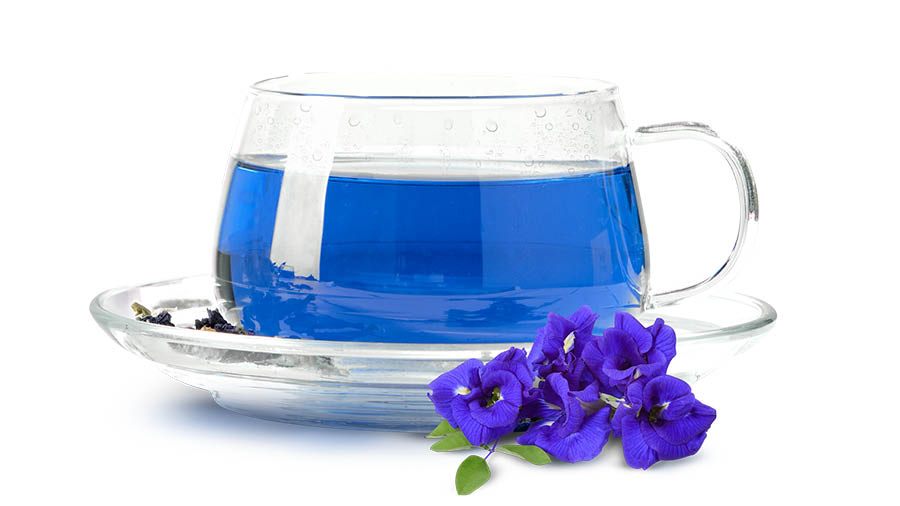A lot can happen over chai and no one knows it better than Sunil Chandra Saha from Chittaranjan in West Bengal and Nitesh Singh from Delhi who have been doing wonders with blue tea.
Back in 2011, without any knowledge on herbs, the duo had never ever imagined that one day they would turn a local shrub, Aparajita (butterfly pea flower), into one of the leading products in the country and change the tea-drinking habit of countless numbers of people. Their recent appearance in Shark Tank India has added to their achievement.
The beginning
After completing his MBA and having worked with leading corporate groups, Saha decided to quit and start teaching. “Within a few months, I realised it was too less of a job with too much pay and I started consulting companies,” Saha said. Saha and Singh, whom he met in Chennai, decided to start their own thing and came up with a tech start-up. It faced turbulence in 2018 and then they got into the blue tea business.

Sunil Chadra Saha and Nitesh Singh with Aparajita flower
“The beginning was really funny. We learnt about this from the internet. After initial research, we learnt that it was a flower extract with several medicinal values, which is very popular in several southeastern countries. After extensive research, we learnt that it was an aparajita flower,” Singh said.
Initially, they had planned to sell the brew to restaurants.
The production
Even though aparajita grows across the country, they couldn’t find the exact product they required. “We needed the dried flower and it was not available anywhere. So, we decided to import it from southeastern countries,” said Singh. However, they also got to know that the flower was widely popular in Europe and is used by top cosmetics brands. However, the duo wanted to market it as a medicinal brew.
After the first consignment, which sold out in a week, the duo realised the potential of the product. “Dried aparajita flowers sold like hot cakes in the US and European markets,” said Saha, realising the need to produce it locally to harness the maximum benefit.
Changing lives
The duo travelled to Bongaon in south Bengal in search of “greener pastures” to produce the flowers locally. Initially, no farmer was ready to grow the flower instead of traditional vegetables, because none could understand the need for a shrub that grows everywhere without much effort. “It takes about three months for the flowers to bloom and the plant lives for four years and in the second or third year, it provides the best crop,” said Singh.
However, after much convincing and promise of covering any loss sustained by the farmers, six were ready to plough their land for the ingredient of the blue brew.

The team after being funded at Shark tank
“Back in 2018, our average income was Rs 5,000 per month for farming traditional vegetables. Once we started growing aparajita, we sold them for Rs 7,000 per kg and our income reached Rs 21,000 per month,” said Montu Sarkar, one of the first farmers to be convinced.
Seeing this huge difference, several farmers came forward. At present, there are more than 200 farmers from UP, Bengal, Maharashtra, Kashmir and Uttarakhand who are employed in aparajita farming and have increased their income manifold.
Why blue instead of green?
Saha and Singh started researching more on the tea business and learnt that the present tea industry in India was initiated by the British.
“But, before that, India had its own tea. Flower-based tea. For hundreds of years, Indians have been consuming aparajita and tulsi tea for health benefits and it was replaced by the British and we intended to bring back that tradition,” said Saha adding the basic difference between flower-based and leaf-based tea is the caffeine, which makes leaf-based tea addictive.
“We are not even trying to compete with traditional tea. For the fact that milk tea is pure love. But several people have started buying our product as an alternative to green tea,” said Singh.

Farmers from Bengal
The abroad story
In the 2021-22 financial year, the company sold around Rs10.01 crore worth of blue tea and most of the orders were from abroad.
“Interestingly, while 90% of our farmers are females, 90% of our customers are mostly women too. They use the product for its immense health benefits,” said Singh.
